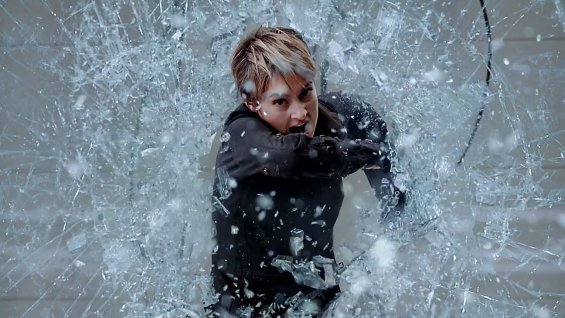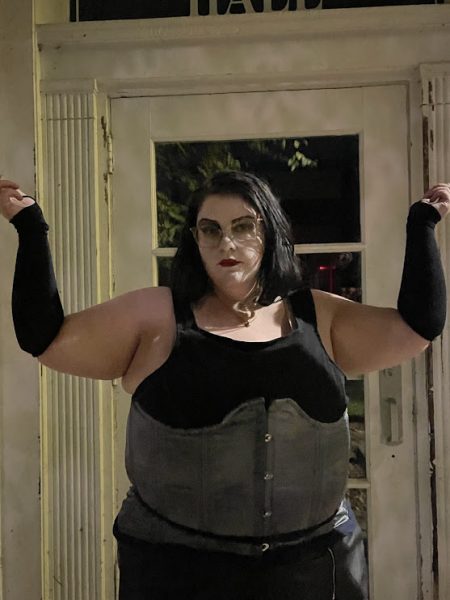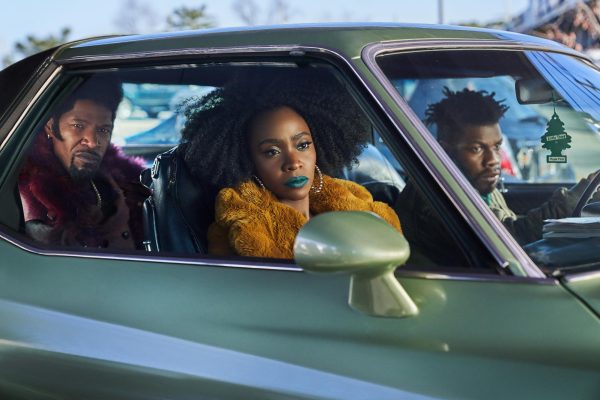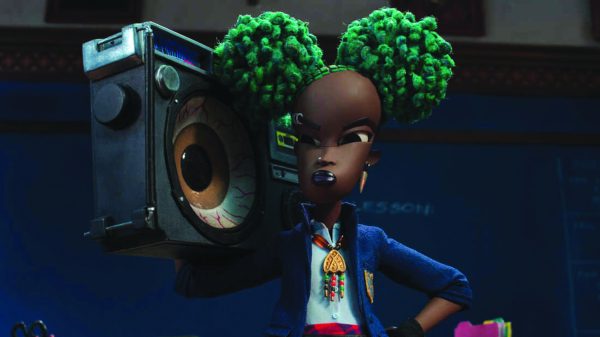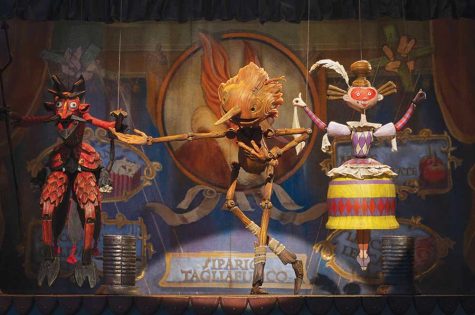“Insurgent”: Hit and Miss
After last year’s “Divergent” flopped its way onto the big screens, fans of Veronica Roth’s Young Adult (YA) dystopian book series weren’t quite sure what to expect when the franchise announced the release of the sequel, “Insurgent.” With the introduction of action-centric director Robert Schwentke (“Flightplan,” “RED,” and “R.I.P.D.”) and Academy Award winning screenwriter Akiva Goldsman (“I am Legend,” “A Beautiful Mind”) to the second installment of the series, hope for the post-apocalyptic film was restored. And, sure enough, the film proved to be far bigger, bolder, and better than the predecessor.
Set in a dystopian society where individuals are ritualistically grouped into one of five factions based on their dominant characteristics— Dauntless (the brave risk-takers), Amity (the lovers), Erudite (the smart ones), Candor (the honest law-abiding citizens) and Abnegation (the selfless ones) — the “Divergent” series brings in all of the components of just about every other YA dystopian novel: a chosen one, a mysterious lover, and a scuffle with a power-hungry dictator.
The sequel welcomes Tris again, but this time, the stakes have risen. Tris is running from her Dauntless community in order to escape the power-hungry Erudite, Jeanine. Tris, of course, is a Divergent — a rare breed of nonconformists who pose an obvious threat to the whole structure of society. Tris — with the help of her fellow Divergent boyfriend, Four — fight their way physically and psychologically to uncover their real purpose as the ones who simply cannot and will not fit with the rest.
Shailene Woodley (“The Spectacular Now,” “The Fault in Our Stars”) brings a natural poise and strength to the film as Tris. This time around, she is looking far more comfortable in her role as a constantly running, fighting character. She maintains a tough girl persona, characterized by an evident eagerness to exchange punches with Dauntless soldiers twice her size. Turns out that Woodley is as willing to whip out the tears as she was the fists. Tris’s psychological warfare proves to be as immediately dangerous as her physical warfare as she battles consistent pressure from being on the run, fear for her life and the lives of others, and extreme guilt for the deaths of some main characters in the first movie. Woodley meets the challenge of expressing the internal journey of her character with frequent heavy breathing, constantly shifting eyes, awkward body movements, and, of course, tears aplenty.
Academy award winner Kate Winslet (“Titanic,” “Finding Neverland,” “Revolutionary Road”) plays Jeanine, the antagonistic, power-hungry Erudite whose perspective is as set as her jaw and cold gaze. Winslet’s steely glance and authoritative tone makes her the nefarious political leader that struggles for more power— a power that is threatened by uncontrollable Divergents like Tris.
Theo James returns as Four, Tris’s mentor and boyfriend. Besides establishing himself as one of the most visually-appealing elements of the film, James captivates the stereotypical role of macho rebel who is escaping his past. He is adoring and loyal, following Tris despite her obvious attraction to danger and harsh decisions. He is strong, handsome, a tough fighter, and still a lover of peace. Could a love interest be more perfect? James brings his pensive facial expressions and obvious chemistry with Woodley to each scene, regularly reminding fans why he embodies Roth’s character of Four so well.
Woodley and Winslet are joined by an array of other rising stars — including Ansel Elgort (“The Fault in Our Stars,” “Carrie”) who plays Tris’s brother, Caleb. Severely underdeveloped, Caleb flies in and out of the picture, arriving at precisely the right moment to make the wrong decision. While his character is obviously struggling about whether or not he sides with his sister and her fellow Divergents or Jeanine, Elgort did not receive the screen time he deserves in establishing motive and depth. Actor Miles Teller (“The Spectacular Now,” “Two Night Stand,” “That Awkward Moment”) brings his natural charm and snarky comments in his role as Peter, the self-centered villain with random moments of kindness, but the second installment of the series leaves less room for his comfortable charisma— the boyish charm and witty off-handed remarks— and interaction with fellow characters to be fully established. While the talent overflows, the character depth and human interaction is obviously trampled beneath the weight of extreme action scenes. Underdevelopment of character proved to be a common and precarious dilemma. Secondary characters— Naomi Watts as Evelyn, Four’s factionless mother, and Octavia Spencer as Johanna, leader of the Amity Faction— were little more than background images.
The film had in its favor a very capable cinematographer Florian Ballhaus. Known for his work in top-rated films like “The Time Traveler’s Wife,” “RED,” and “The Book Thief,” Ballhaus brings his expertise to the screen, transforming the cities of Chicago and Atlanta into the post-apocalyptic, dystopian world. “Insurgent” presented a slew of visual effects-intensive challenges, including the juxtaposition between scenes of real occurrences and simulations that are all in Tris’s head. The simulations were shot spherically (as in, 360° panning scopes, coupled with less lighting), while real scenes were shot with an anamorphic lens (which increases the resolution for more vivid detail and aesthetic component). But, in all cases, the scenes were designed to be bigger and more surreal than before. And the city’s absolute devastation serves as a chilling backdrop for the action that plays out.
Schwentke added to the film far more action and excitement that “Divergent” ever had. And, probably one of the most significant changes came in the complexity of Tris herself as she experiences more emotions and, more importantly, more strength in her role. It was obvious that he found something about the post-trauma of Tris in the first movie to be fascinating, and he adequately divulged that sense on set.
Any faults of the film rest with the script. Gaps of character depth coupled with the over-dramatization of regular clichés proves to stunt the component of human interaction at times.
That being said: “Insurgent” continues to serve as an altogether entertaining film.
It boasts a strong cast and intense action scenes with an array of elaborately detailed visuals. While it may suffer slightly in comparison with other YA dystopian movie series (namely “The Hunger Games”) it proves to be a pleasurable experience that can still stand on its own two feet in the entertainment world.


